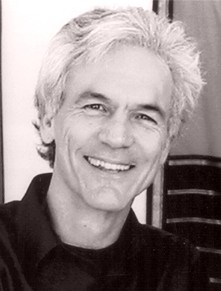A Quote by Stefan Zweig
There are two types of compassion. One - is faint-hearted and sentimental. Actually, it is nothing more than impatience of the heart, that is hurrying to get rid of that hard feeling when you see other peoples' sufferings; this is not a compassion, but just an instinct will to defence yourself from misfortunes of others. But there is another compassion - real one, that demands for actions, not sentiments, it knows what it wants, and it is full of determination to do everything, what is in human power and even beyond it.
Quote Topics
Actions
Actually
Another
Beyond
Compassion
Defence
Demands
Determination
Even
Everything
Faint
Feeling
Full
Get
Hard
Heart
Hearted
Human
Human Power
Hurrying
Impatience
Instinct
Just
Knows
Misfortunes
Misfortunes Of Others
More
Nothing
Other
Others
Power
Real
Rid
See
Sentimental
Sentiments
Than
Two
Types
Wants
Will
Yourself
Related Quotes
There are two kinds of pity. One, the weak and sentimental kind, which is really no more than the heart's impatience to be rid as quickly as possible of the painful emotion aroused by the sight of another's unhappiness, that pity which is not compassion, but only an instinctive desire to fortify one's own soul agains the sufferings of another; and the other, the only one at counts, the unsentimental but creative kind, which knows what it is about and is determined to hold out, in patience and forbearance, to the very limit of its strength and even beyond.
Compassion does not just happen. Pity does, but compassion is not pity. It's not a feeling. Compassion is a viewpoint, a way of life, a perspective, a habit that becomes a discipline - and more than anything else, compassion is a choice we make that love is more important than comfort or convenience.
The nectar of compassion is so wonderful. If you are committed to keeping it alive, then you are protected. What the other person says will not touch off the anger and irritation in you, because compassion is the real antidote to anger. Nothing can heal anger except compassion. That is why the practice of compassion is a very wonderful practice.
It is utterly and irrevocably possible to empty all hurts and therefore to love, to have compassion. To have compassion means to have passion for all things, not just between two people, but for all human beings, for all things of the earth, the animals, the trees - everything the earth contains. When we have such compassion we will not despoil the earth as we are doing now and we will have no wars.
If you love the justice of Jesus Christ more than you fear human judgment then you will seek to do compassion. Compassion means that if I see my friend and my enemy in equal need, I shall help them both equally. Justice demands that we seek and find the stranger, the broken, the prisoner and comfort them and offer them our help. Here lies the holy compassion of God that causes the devils much distress.
To possess both wisdom and compassion is the heart of our human revolution. If you have wisdom alone and lack compassion, it will be a cold, perverse wisdom. If you have compassion alone and lack wisdom, you cannot give happiness to others. You are even likely to lead them in the wrong direction, and you won't be able to achieve your own happiness.
Invoke the Mercy of God and as milk returns not to the udder go not back to your wrongdoing." "Have compassion on yourself and on others and Infinite Compassion will be given to you." "In the name of Allah, All-Merciful, All Compassionate, bestow on me a Mercy that shall put me beyond the need of mercy from any other than Thee.
The essence of love and compassion is understanding, the ability to recognize the physical, material, and psychological suffering of others, to put ourselves "inside the skin" of the other. We "go inside" their body, feelings, and mental formations, and witness for ourselves their suffering. Shallow observation as an outsider is not enough to see their suffering. We must become one with the subject of our observation. When we are in contact with another's suffering, a feeling of compassion is born in us. Compassion means, literally, "to suffer with."
Nothing helps us build our perspective more than developing compassion for others. Compassion is a sympathetic feeling. It involves the willingness to put yourself in someone else's shoes, to take the focus off yourself and to imagine what it's like to be in someone else's predicament, and simultaneously, to feel love for that person. It's the recognition that other people's problems, their pain and frustrations, are every bit as real as our own-often far worse. In recognizing this fact and trying to offer some assistance, we open our own hearts and greatly enhance our sense of gratitude.
Compassion arises naturally as the quivering of the heart in the face of pain, ours and another's. True compassion is not limited by the separateness of pity, nor by the fear of being overwhelmed. When we come to rest in the great heart of compassion, we discover a capacity to bear witness to, suffer with, and hold dear with our own vulnerable heart the sorrows and beauties of the world.
A man of understanding, a man who understands himself and others, always feels compassion. Even if somebody is an enemy you have compassion toward him because a man of understanding can understand the viewpoint of the other also. He knows why the other feels as he feels, he knows why the other is angry, because he knows his own self, and in knowing that, he has known all others.
The human being is that space in which the comprehensive compassion that pervades the universe from the very beginning now begins to surface --within consciousness. (As compared with the natural displays of compassion by other creatures that is not necessarily 'within consciousness. ') That's the only difference. We didn't create compassion, but it's flowing through us-or it could. The phase change that we're in seems, to me, to depend upon that comprehensive compassion unfurling in the human species.




































